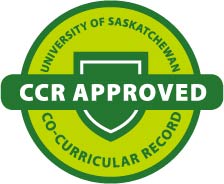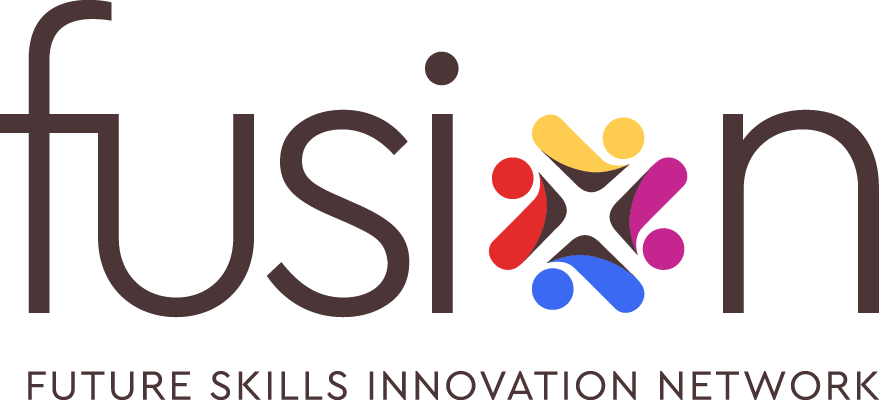What is FUSION?
The Future Skills Innovation Network (FUSION) is a national cross-collaborative network of Canadian universities focused on exploring innovative and inclusive experiential learning approaches to foster skill development and prepare university students to join a rapidly evolving world of work. The FUSION project is comprised of five partner institutions: University of Saskatchewan, Carleton University, Concordia University, Memorial University,and University of Calgary.
Aiming to help universities prepare students for the future economy, FUSION is focused on achieving three main goals:
- Improving postsecondary outcomes for students from underrepresented groups
- Developing students’ work-related skills through curricular and co-curricular activities
- Creating more flexible formats for accessing learning
FUSION Skill-Development Curriculum
The FUSION Skill-Development Curriculum is an interactive and engaging online, self-study curriculum designed to wraparound and complement a student’s existing experiential learning opportunity (e.g. internship, student leadership role, research project, part-time job, volunteer placement, or summer work term).
The current skill module offerings, which can be completed individually or in clusters, are
- AI Literacy- Use AI and AI-generated content responsibly and with a critical eye, and identify the practices that will help you use AI effectively in different types of situations.
- Adaptability- Adjust goals and behaviours to respond to changing tasks, contexts, or environments.
- Collaboration- Perform effectively whenever you work with others.
- Communication- Receive, consider, understand, and share information and ideas through various media and interactions with others.
- Constructive Dialogue- Enhance your existing communication skills and navigate a variety of rhetorical situations and contexts. Engage in constructive feedback and collaborative problem solving.
- Creativity- Enhance creative thinking and tap into your unique perspective to communicate more meaningfully and solve problems in original ways.
- Digital Literacy- Understand how to access and utilize accurate digital information, communicate and collaborate effectively online, and think about your digital footprint.
- Inclusivity- Develop trusting environments, foster positive workplace cultures, and allow others to experience a sense of belonging.
- Innovation- Learn the basics of innovative thinking and entrepreneurship.
- Metacognition- Improve memory and attention, activate prior knowledge, and use strategies to solve problems or perform complex tasks.
- Problem-Solving- Identify and address issues in all areas of your life, make decisions, troubleshoot, and select appropriate strategies to act and implement solutions.
- Self-Management- Organize your time, motivate yourself, work and learn in effective and efficient ways, and control your emotions and actions.
Coming Soon
- Well-being- Gain practical tools and resources to support your physical, emotional, and social wellbeing. (Winter 2025)
Using their experiential learning opportunity to apply their learning in real-time, students will learn to:
- Identify and articulate personal learning strategies and strengths in learning and processing information
- Identify how to adjust communication based on context, audience, purpose and medium
- Analyze and deconstruct a simulated work problem using the stages of the problem-solving cycle
Benefits of Participation

Students that participate in the FUSION Skill-Development Curriculum will have the opportunity to:
- strengthen critical skills needed to adapt and succeed in the world of work
- enjoy a richer and more meaningful experiential learning opportunity
- receive acknowledgment on your CCR (if participating as part of a non-credit experience)
Easily embedded skill development content and resources to your course or learning opportunity! Benefits include:
- Enrich applied or experiential learning and support transferable skill development for students
- Canvas integration and learning outcome alignment support
- Skills articulation support
- Optional Community of Practice and ongoing support from Teaching and Learning staff
View the USask FUSION Report 2020-21
View the FUSION One Pager 2021 Report
How to Participate
Please contact Brette Kristoff if you are a student interested in participating in the FUSION Skill-Development Curriculum.
Student Testimonials
“I think it's really beneficial for students to get [FUSION], especially in their early years of university, because that stuff, that's going to carry over. And those are skills that could help them in school, but also just in life in general.”
“I found it to be very eye opening. It covered a lot of concepts that I had never heard of before … overall I did find it quite joyful. I learned a lot from it.”
“The curriculum enhanced my pre-existing skills and helped develop new skills that are helpful in the academic environment.”


